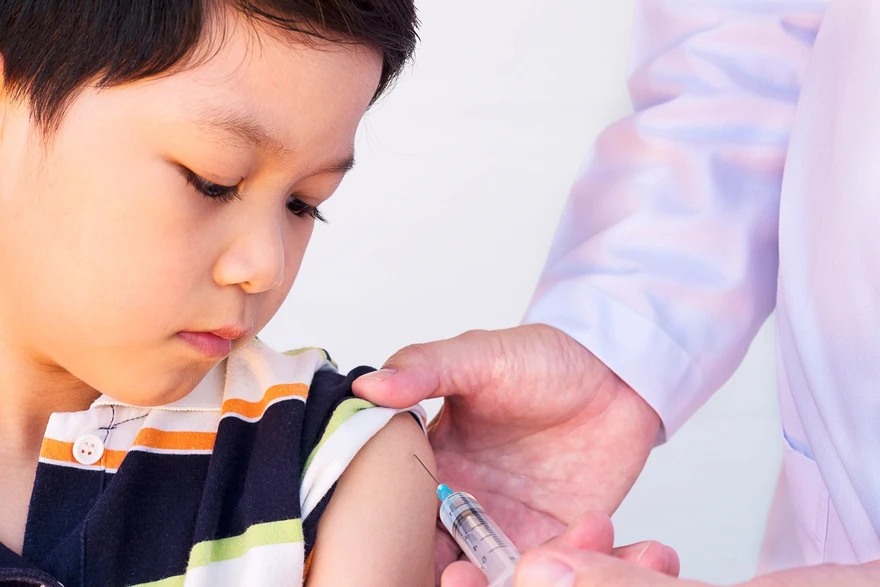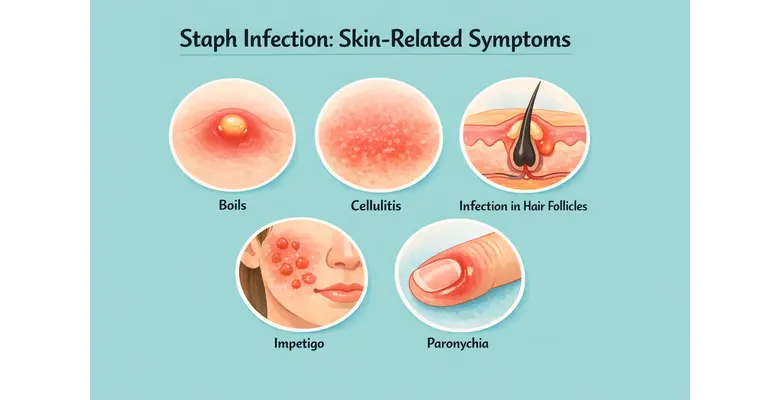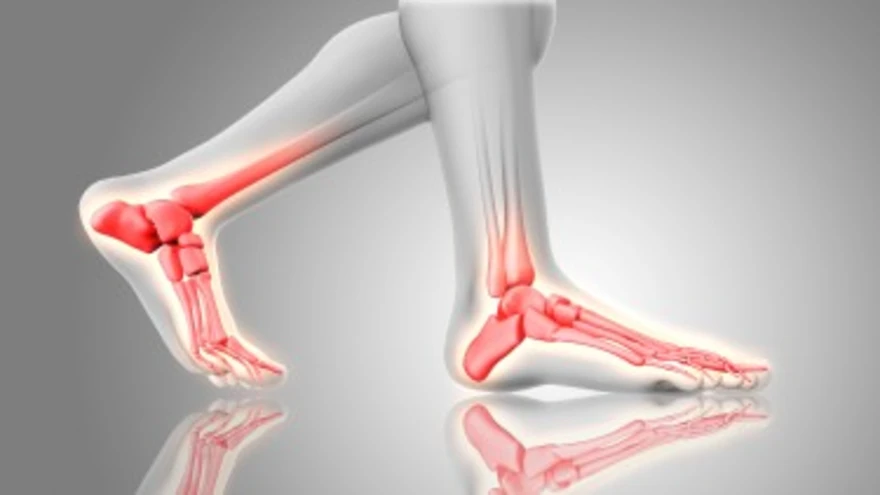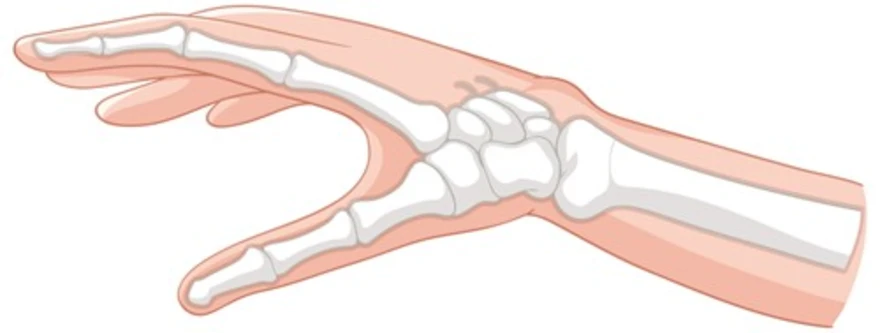Preventive Healthcare
Tetanus (Lockjaw): Symptoms, Causes, Treatment and Prevention

Table of Contents
- What is Tetanus?
- Who does Tetanus affect?
- How common is Tetanus?
- What are the symptoms of Tetanus?
- What does Tetanus look like?
- What is the incubation period for Tetanus?
- What causes Tetanus?
- How is Tetanus diagnosed?
- Is Tetanus curable?
- How is Tetanus treated?
- What medications are used to treat Tetanus?
- How long does it take to recover from Tetanus?
- How can I reduce my risk of Tetanus?
- How can I prevent Tetanus?
- What can I expect if I have Tetanus?
- Is Tetanus fatal?
- What’s the difference between complete Tetanus and incomplete Tetanus?
- When to see a doctor?
- Conclusion
What is Tetanus?
Tetanus, which is often referred to as 'lockjaw', is a serious bacterial disease that affects the nervous system, leading to painful muscle contractions. While it might seem alarming, understanding this condition is the first step towards tetanus prevention.
Tetanus is caused by the toxin-producing bacterium Clostridium tetani, which thrives in soil and animal feces in a dormant state until it finds a suitable environment to grow, such as a wound. As the bacteria grow and divide, they release a powerful neurotoxin called tetanospasmin, which affects the nerves that control the muscles in our body.
Who does Tetanus affect?
Tetanus can affect anyone who is not up to date with their tetanus vaccinations. If you have cuts in soil or manure, have infected skin lesions from diabetes, or use unsanitary needles or illegal drugs, you are at higher risk. Tetanus is also more common in warm places, on farms and among males. In some developing countries, the problem is more serious because there are not many vaccines available. Newborns and their parents who have not been vaccinated are most at risk.
How common is Tetanus?
Due to widespread immunization programs worldwide, instances of tetanus are rare in developed nations. However, in developing countries, where vaccination rates are low or inconsistent due to resource limitations or unavailable health coverage, tetanus remains relatively common due to limited knowledge and practice of tetanus prevention and tetanus treatment.
What are the symptoms of Tetanus?
Tetanus symptoms typically start manifesting anywhere from 3 to 21 days post-infection, with an average incubation period of about 10 days. They usually start at the jaw and progress downwards, which is why it is often referred to as 'lockjaw'.
Common tetanus symptoms include:
- Painful muscle spasms
- stiff jaw
- Tension of muscles around your lips, sometimes producing a persistent grin
- Swallowing Difficulty
- Rigid abdominal muscles
What does Tetanus look like?
Tetanus presents with muscle stiffness and spasms, starting in the jaw (lockjaw) and neck. Severe tetanus cases causes a rigid body posture, swallowing difficulty, and breathing issues, which often appear within days of tetanus infection.
What is the incubation period for Tetanus?
The incubation period for tetanus typically ranges from 3 to 21 days, with most cases occurring within 8 days. Tetanus symptoms may appear earlier in more severe cases or with heavily contaminated wounds.
What causes Tetanus?
Tetanus is caused by bacterium Clostridium tetani, which enters the body through a contaminated cut or wound. Tetanus causes symptoms by producing a powerful neurotoxin called tetanospasmin. This toxin further interferes with nerve signals, causing muscle stiffness and spasms. The primary route of transmission is when the tetanus-causing bacteria entering deep wounds, where they thrive in anaerobic (oxygen-deprived) conditions.
Tetanus symptoms include muscle rigidity and painful contractions, initially starting in the jaw and neck (Lockjaw) and progressing in other parts of the body. The severity of tetanus symptoms depends on the amount of toxin produced and absorbed in the bloodstream.
Without a prompt treatment, tetanus causes serious complications such as breathing difficulties, respiratory failure and even death in serious cases.
How is Tetanus diagnosed?
Medical professionals usually diagnose tetanus based on physical symptoms, as well as the patient's medical and immunization history. Laboratory tests are rarely helpful as they often provide inconclusive tetanus results.
Is Tetanus curable?
Tetanus can be treated but not cured. Timely medical intervention with tetanus immune globulin and antibiotics can neutralize the toxin and kill the bacteria. Supportive care such as wound management and muscle relaxants to control spasms are also vital. Prevention through vaccination remains the best strategy against tetanus.
How is Tetanus treated?
Tetanus treatment involves a combination of medications followed by supportive care. Immediate treatment involves administering tetanus immunoglobulin to neutralize the tetanus toxin in the blood. Antibiotics are given to kill C. tetani.
Supportive care for tetanus includes wound cleaning and management to prevent the bacterial growth, as well as muscle relaxants to alleviate spasms and respiratory support if breathing is compromised.
Recovery from tetanus depends on the severity of the symptoms and promptness of treatment. Prevention through vaccination with the tetanus toxoid vaccine is essential to reduce the risk of tetanus infection.
What medications are used to treat Tetanus?
Medications for tetanus treatment include:
- Antibiotics to kill bacteria
- Antitoxin to neutralize the toxin not yet bound to nerve tissue
- Sedatives to control muscle spasms
- Vaccines to prevent future infection
How long does it take to recover from Tetanus?
Recovery from tetanus may take several weeks to months, depending on the severity of symptoms.
How can I reduce my risk of Tetanus?
To reduce your risk of tetanus:
- Keep your tetanus vaccination up-to-date
- Wear protective footwear while working outdoors
- Clean any wounds promptly with soap and water
How can I prevent Tetanus?
Tetanus prevention involves ensuring up-to-date vaccination with the tetanus toxoid vaccine, typically administered in childhood and followed by booster shots every 10 years or after potentially contaminated wounds.
Proper wound care, including cleaning cuts and scrapes promptly with soap and water, is crucial to prevent tetanus-causing bacteria from entering the body.
Seeking a prompt medical attention for deep or dirty wounds and receiving tetanus immunoglobulin if necessary are also important preventive measures. By maintaining good vaccination status and practicing a diligent wound care, the risk of tetanus infection can be significantly reduced.
What can I expect if I have Tetanus?
If you have tetanus, you can expect muscle stiffness and spasms, starting in the jaw and neck. Symptoms may progress to painful muscle contractions throughout the body, affecting breathing and swallowing.
Is Tetanus fatal?
Tetanus can be fatal, especially if left untreated or if severe complications like respiratory failure occur. Prompt medical treatment is crucial for managing the condition effectively.
What’s the difference between complete Tetanus and incomplete Tetanus?
Complete tetanus involves sustained muscle contractions without relaxation, leading to continuous muscle spasms and stiffness. In incomplete tetanus, muscle spasms occur intermittently with periods of relaxation between contractions. The severity and frequency of spasms vary, but both forms require medical attention for management and treatment.
When to see a doctor?
You should see a doctor for tetanus if you have a deep or dirty wound, experience muscle stiffness or spasms, or you haven't had a tetanus vaccine in over 10 years.
Conclusion
Understanding tetanus goes a long way in protecting you and your loved ones from this potentially serious condition. Remember, timely vaccination is your best defence against tetanus. If you've not had your shot or are unsure when you last had one, consult with a healthcare provider immediately.
At Metropolis Healthcare, we're committed to empowering you with trusted health information and diagnostic services right at your doorstep. Our team of well-trained technicians provides at-home sample collections for various pathology tests, which are processed at our advanced labs, ensuring accurate results and personalized care. So don't let something as preventable as tetanus put your health at risk. Stay informed, stay vaccinated, and stay healthy.


























